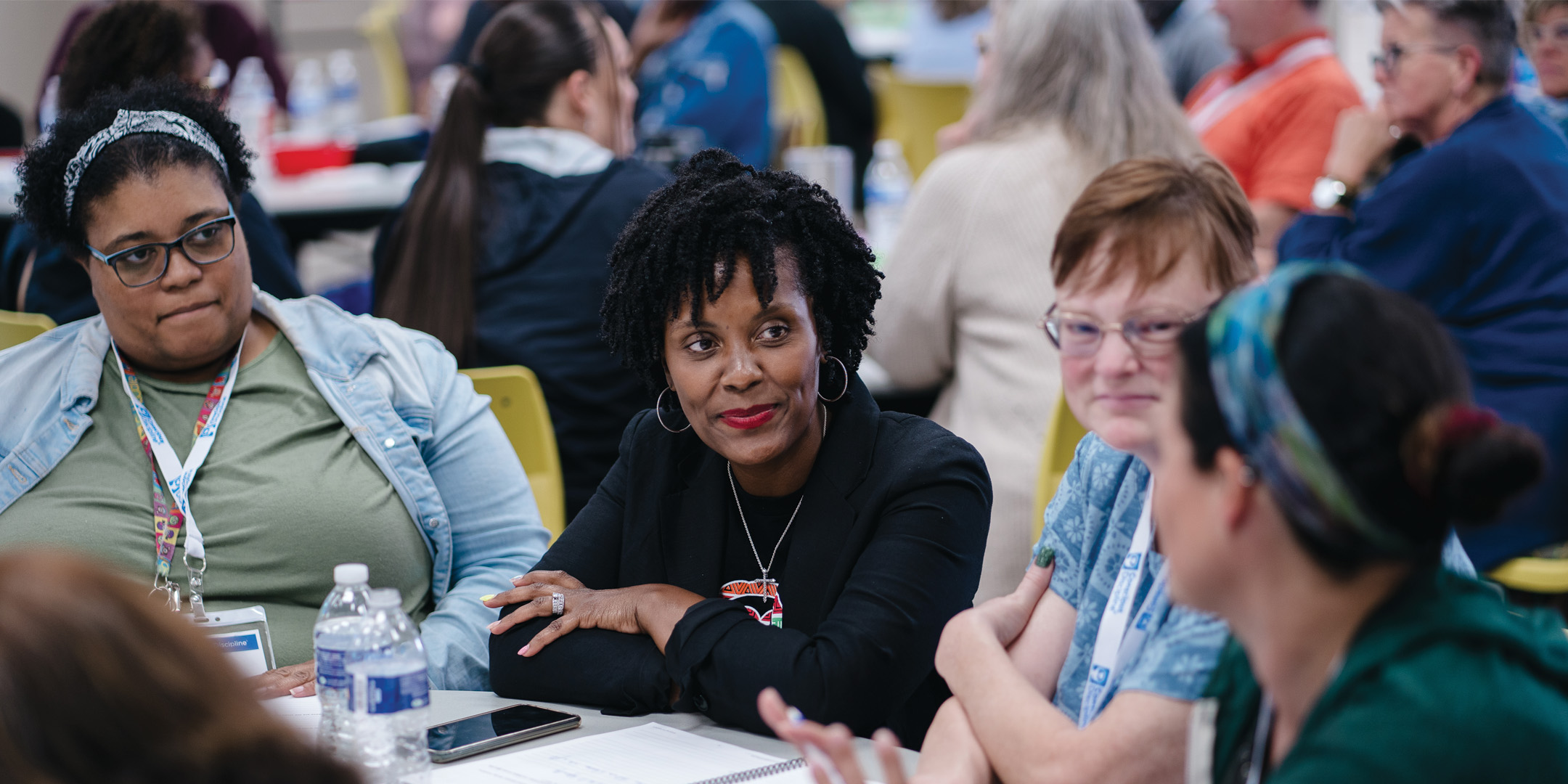When we think of autism, our frame of reference can be limited to students with ASD in our school systems. While it is true that autism is an important topic of discussion in relation to thinking about how to teach children with autism, what is often overlooked is the effect that ASD has on adults and on caregivers and educators. A recent study identified depressive symptoms in 72.5 % of mothers of children with autism; a staggering 80.2% of mothers suffer from both depression and anxiety. ASD affects everyone of all ages- So why isn’t anyone addressing it for all ages, across all demographics?
Conscious Discipline is.
What is autism spectrum disorder?
According to the CDC, autism spectrum disorder (ASD) is a developmental disability caused by differences in the brain. People with autism spectrum disorder typically have challenges with social communications and social interactions. These challenges might be peppered with certain repetitive behaviors or interests. People with ASD are neurodivergent in the way they can behave, but also the way they learn which has made it a hot topic in educational circles. In 2023, one in every 36 children were diagnosed with ASD. Conscious Discipline’s powers, skills and principles provide a transformative foundation for those with ASD and those who care for and educate them.
Why is Conscious Discipline a Compatible Solution?
Conscious Discipline is an adult-first, evidence-based and trauma-responsive approach that focuses on self-regulation. We encourage a shift to seeing all behavior as a form of communication and recognize that it is our job to regulate ourselves first before figuring out the missing skill or unmet need the student’s behavior is indicating whether at home, in a classroom or out in the world. This is particularly helpful when interacting with people with ASD. Conscious Discipline does not provide behavior strategies for students with ASD but rather, self-regulation strategies that can be implemented by everyone.
Those in the ASD community often struggle with self-regulation and connection. This may look like poor eye contact, impulsive behaviors, repetitive movements, and a lack of awareness and/or expression of emotions that often can be misinterpreted as, “misbehavior.” We must see children (and adults, too) differently if they are to behave differently. Shifting from placing our focus on the behavior to placing our focus on seeking out the missing skill or need and addressing it in repeated and differentiated ways has long-term positive impacts for those with ASD, and those who love and support them.
Conscious Discipline’s powers, skills, and principles in addition to resources such as the Feeling Buddies, the development of a C.A.R.E. room, the Conflict Resolution Time Machine and others create a solid foundation of self-regulation practices and tools that provide insight into how to support ASD students in the classroom that can be carried throughout a lifetime- for people with ASD, caregivers, and educators alike.
Powers, Principles and Skills of Conscious Discipline for ASD
Conscious Discipline’s, powers, principles, and skills are perfectly aligned with the needs of people with autism spectrum disorder and those in their community. The Seven Powers for Conscious Adults (Perception, Attention, Unity, Free Will, Acceptance, Love, and Intention) empower us to self-regulate. These powers create success for the long term by encouraging us to become present and attuned to our needs, and the needs of those in our care. The more we lean into the seven powers, the more we can access our executive brain state; the only state in which higher order thinking can occur. It is here and only here that we can navigate impulsive and reactive behaviors. This skill is essential for caretakers and educators of those with autism spectrum disorder and for those with ASD. Depending on where a student may fall on the spectrum, the powers coupled with other ASD intervention strategies can provide much needed autonomy, communication, self-regulation, and valuable connections with others. Conscious Discipline increases the social and emotional learning of those who seem resistant, reactive, or unreachable.
Routines and Rituals of Conscious Discipline for ASD
People thrive in safe environments with predictable routines and rituals that focus on the building of connection and socialization; it is not any different for those with ASD. Conscious Discipline promotes social, emotional, and academic success in students with ASD through enhanced routines, rituals, and self-regulation. Conscious Discipline’s celebration of the development of routines and rituals to encourage connection coupled with visuals that people with ASD often require for comprehension is a perfect match. Specific, connecting rituals, such as I Love You Rituals, Wish Wells and greetings and/or goodbyes provide a safe and loving foundation for students as well as adults with ASD to establish connections with others; something that those with ASD often struggle developing. Providing visuals to encourage safe choices is just another way Conscious Discipline supports those with ASD and caregivers.
Lifelong Self-Regulation for People with ASD and Their Caregivers
What makes Conscious Discipline a unique approach is that we are not a curriculum-we are an evidence-based practice that can be carried from childhood throughout adulthood. It is never too early, or too late to begin. Transform your educational approach with strategies for creating an educational culture in which all stakeholders thrive and cultivate a sense of belonging, connection, cooperation, and joy, even with students who seem resistant or unreachable at our two-day workshop in Raleigh, NC. Dr. Becky Bailey and Master Instructor Kim Jackson will teach you how to use Conscious Discipline and teaching strategies for students with ASD. Learn evidence-based strategies to create a cooperative, compassionate, equitable and sustainable educational culture in which everyone can thrive.
- Self-Regulation Success with Rhythm and C.A.R.E.
- Safe Place Sensory Support Signs
- Active Calming Center
- Feeling Buddies
- Conflict Resolution Time Machine
- I Love You Rituals
- We Wish You Well Board
The post Empowering Lifelong Self-Regulation: How Conscious Discipline Transforms Students with ASD and Caregivers appeared first on Conscious Discipline.
This content was originally published here.
